The United States Small Business Administration (SBA) recently announced significant amendments to SBA affiliation rules and lending criteria. These amendments will materially impact regulations related to the use of proceeds for partial ownership changes, loan conditions, reconsiderations, and business affiliation standards. The stated objective for these new rules for SBA loans is to expand access to capital to small businesses.
Which Loans Do the Amendments Apply To?
The amended affiliation standards are expected to apply to the following small business loans offered by the SBA:
- Microloan Program;
- Intermediary Lending Pilot Program;
- Surety Bond Guarantee Program; and
- Disaster Loan programs (with a notable carve out for COVID-related loan programs such as the Economic Injury Disaster Loan Program).
In addressing the question, “Is there a need for this regulatory action?”, the SBA’s response is a resounding yes. The SBA asserts that there is a need to streamline and reduce regulatory burdens to encourage participation in business loan programs designed to assist small businesses across the US.
Here are the five biggest changes from the final rule:
- Proceeds for partial changes of ownership;
- Lending criteria;
- Loan conditions;
- Reconsiderations; and
- Affiliation standards.
1. Proceeds for Partial Changes of Ownership
Current regulations do not allow the proceeds of SBA 7(a) loans to be used for the partial ownership change of a business. The SBA agreed that such a restriction imposed a regulatory burden on small business owners.
As a result, the SBA is amending this restriction on borrowers using SBA 7(a) loan proceeds so they can now be used to secure a partial ownership change of a small business.
Why The Amendment Matters
Modifying how SBA 7(a) loans can be used, particularly letting these loans be used to fund a change in business ownership (e.g., a prospective owner purchasing a percentage, or all, of a retiring or departing owner business). This amendment is expected to aid small business owners by expanding pathways to ownership.
The revisions to 13 CFR Section 120.130 will enable a borrower to:
- Purchase a portion of a small business;
- Purchase a portion of an owner’s interest in a business; or
- Purchase the entire business or an owner’s entire interest.
In addition, a borrower is allowed to purchase the partial or entire interests of multiple owners.
2. Lending Criteria
The SBA is also making notable modifications to the lending criteria and regulations for SBA 7(a) loans and SBA 504 loans. Those modifications, which are contained within 13 CFR Section 120.150, include the following:
- Key factors considered;
- Conditions that must be met to secure a loan;
- Reconsiderations;
- Affiliation standards; and
- The aforementioned use of funds to aid in the funding of partial business ownership changes.
Why The Amendment Matters
Before the amendments, the SBA considered nine different factors to assess an applicant’s creditworthiness, including their ability to make loan payments, collateral, past and future business financial statements, the overall strength of the business, and so forth. The amended regulations streamline the credit criteria to just the following factors: credit score or credit history, earnings or cash flow of the business or collateral.
The new criteria will likely mean more small businesses may qualify for an SBA loan based on objective factors rather than factors like character that can be up for interpretation by the lender.
3. Loan Conditions
According to 13 CFR Section 120.160, the SBA previously required hazard insurance on all collateral with no differentiation based on loan size. The SBA determined the hazard insurance requirement posed an unnecessary burden for small business owners, particularly some of the smallest business owners who were borrowing relatively nominal amounts of money.
Accordingly, the amendments instituted for Section 120.160 effectively remove the hazard insurance requirement for SBA loans of $150,000 or less. For loans larger than $150,000, the SBA will continue to require hazard insurance on all collateral.
Why The Amendment Matters
Similar to the modifications made to SBA lending criteria, the changes to SBA loan conditions are designed to achieve an overarching objective: streamline and modernize SBA regulations, particularly for popular SBA 7(a) loans and SBA 504 loans. Once streamlined and modernized, the SBA and participating lenders will be better able to meet the needs of America's small businesses, create jobs, and assist in the economic recovery following the havoc wrought by the COVID–19 pandemic.
4. Reconsiderations
According to 13 CFR Section 120.193, the protocol for final reconsideration after denial of an SBA 7(a) loan or 504 loan application or loan modification request will be updated with the goal of making the process efficient and effective. Prior to the amendments, reconsideration decisions had to be made by the SBA’s Director of the Office of Financial Assistance.
Section 120.193 has now been revised to expand the individuals authorized to render a reconsideration decision. The amendments now allow the Director of the Office of Financial Assistance “or the Director’s designee(s)” to make the final decision on reconsideration.
Why The Amendment Matters
As mentioned, the expanded number of individuals able to review, and render a decision, on a reconsideration request is intended to enable more expeditious reconsiderations.
5. Affiliation Standards
The SBA simplified the affiliation standards in 13 CFR Section 121.301, which set forth the principles for determining affiliation for SBA 7(a) loans, SBA 504 loans, and other prominent SBA loan programs. Specifically, the SBA amendments removed provisions of affiliation arising from management and control, franchise or license agreements, and identity of interest.
The revised standards help streamline affiliation determinations based on ownership and remove reference to affiliation based on franchise and license agreements. Basically, the SBA is removing the principle of control of one entity over another from its affiliation consideration.
Why The Amendment Matters
The amendments to 13 CFR Section 121.301 help simplify affiliation determinations, which helps the SBA in its larger goal of streamlining and modernizing the SBA loan process.
Interested in Learning More? Register for the SBA Loan Essentials Training Course
SBA loans can be a boon for many business owners, but they also have unique drawbacks, requirements, and limitations. Whether you represent lenders or borrowers, it's important to know how the SBA lending process works.
Learn more about the differences between the different types of SBA loan options and get practical guidance surrounding eligibility and permitted fund use. Discover what the due diligence process entails and get up to speed on essential SBA loan documentation.
Register to learn more about the rules for SBA loans here.

Patrick Austin is an attorney specializing in administrative law, including regulatory and compliance matters with experience working in both the public and private sector. Patrick graduated from Old Dominion University in 2009 with a BA in Technical & Professional Writing. He then went on to attend George Mason University School of Law and graduated in 2013. Upon passing the Virginia Bar Exam, Patrick went into private practice joining a boutique law firm focused on civil litigation. Patrick gained invaluable experience overseeing pre-trial discovery, responding to complaints, taking and defending depositions, and so forth. Patrick currently practices law in the Richmond, VA area.
This post was written by a guest blogger. Although this article was thoroughly reviewed by NBI staff, the views, opinions and positions expressed within the post are those of the author alone and do not represent those of NBI. The accuracy, completeness and validity of any statements made within the post are not guaranteed. We accept no liability for any errors, omissions or representations.
Related Topics
Trusted by Over 30,000 Law Firms
Leading law firms and businesses trust NBI for their CLE needs





